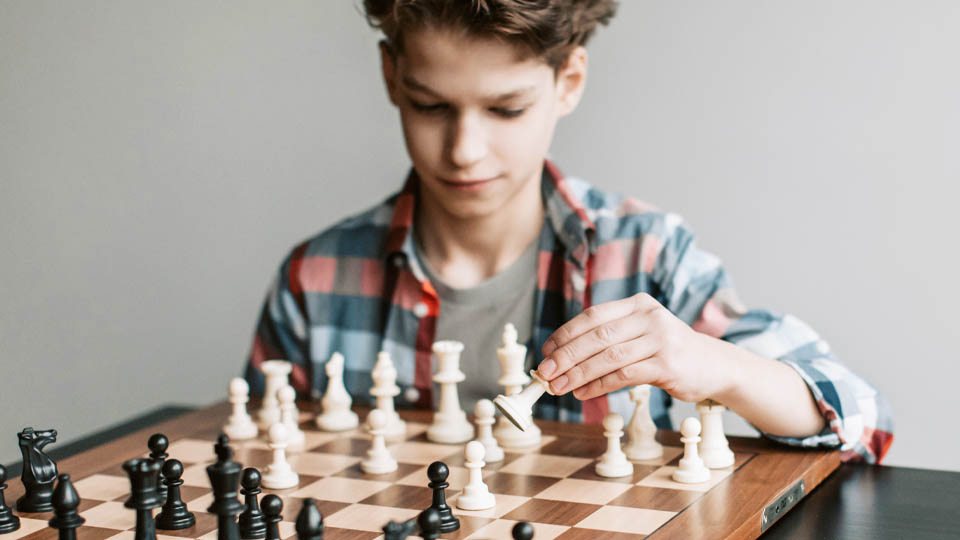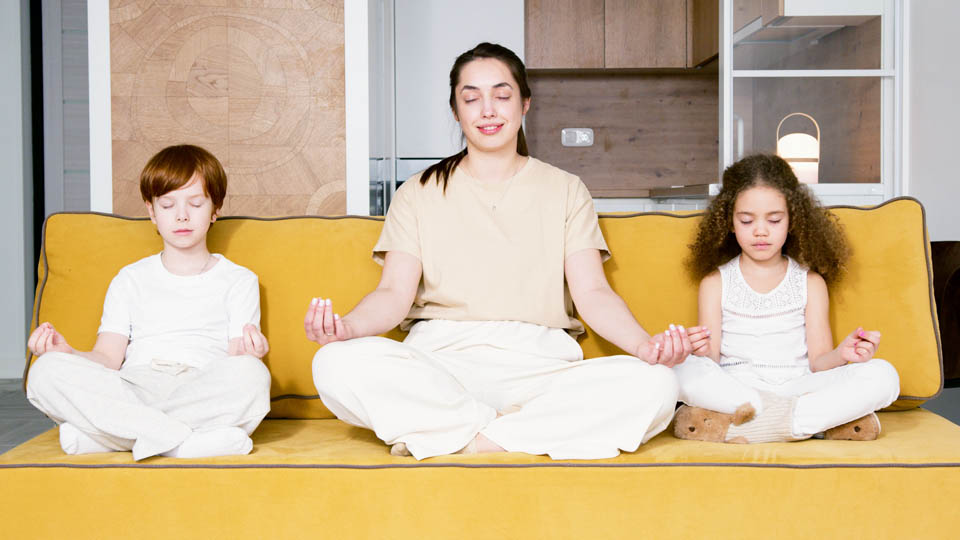
Phones, tablets, and smartwatches are great technology, but they also come with certain downsides. Namely, the addiction to smartphone games.
The good news is that there are specific games that actually ‘boost’ your child's mental health, as opposed to making it worse.
In this article, we will break down the 5 best games that can have a positive impact on your child's life.
1) Chess (For Solving Problems)
You may look at chess as nothing more than a fun game to play with friends; however, that couldn’t be further from the truth.

Chess is great for a host of things like developing problem-solving skills, concentration, and improving creativity. These benefits apply to everybody (even adults!), but they are more pronounced in children as their brains are still developing.
A study conducted in 2019 also found that learning chess from a young age makes people able to see the world from other people's points of view (source). Seeing the world through the lens of others is an excellent skill when it comes to building and managing relationships later on in life.
2) Solitaire
Similar to Chess, Solitaire is an excellent card game for your children's mental health and patience. In fact, Solitaire is often referred to as ‘patience.’ Let’s be honest, who doesn’t want their kids to be more patient at times?
The purpose of the game is to arrange cards in a specific order.
Unlike chess, you’re not playing against an opponent, but it’s great for some alone time when your child wants to relax.
Other benefits include attention to detail, solving math problems, and better memory.
3) Headspace (For Mindfulness)
After long stressful days at school, relaxation and mindfulness are crucial for young children. The problem is that some children find it difficult to relax, especially with everything being so fast-paced nowadays.
The solution to this problem is an app called headspace.

Headspace is a meditation app designed to calm the mind. It focuses on guided meditation and has a user-friendly interface, so your child can easily choose the type of meditation they want. Guided meditation options include happiness, self-esteem, patience, and more.
There is a free trial and it allows your children to track their meditation sessions, helping to keep them motivated.
4) Pzizz (For Effortless Sleep)
Kids are full of energy, so it’s not uncommon that they sometimes struggle to get a good night's sleep. A great way to combat insomnia in children is through an app called ‘Pzizz’.
Pzizz is similar to guided sleep meditation; however, there is a key difference. With most guided sleep meditations, you’re listening to the same track over and over
again. Eventually, your child's brain will get used to these sounds, making them less effective.
With Pzizz, the soundtracks are different each night, so the effect doesn’t diminish with time.
Unfortunately, Pzizz is not free. It costs $49.99 annually or $7.99 per month. The good news is that you can get a 30-day free trial.
5) Funexpected Math (For Math Skills)
Remember when math was boring? Well…not anymore!

Funexpected is a great smartphone game for kids that takes the ‘stress’ out of math. Rather than teaching math with numbers, it uses fun games and puzzles.
Not only does this game improve your child's problem-solving skills, but also allows them to have fun in the process!
That’s what it’s all about, right!?
Wrapping Up
With so many negative influences for kids to see online nowadays, finding a beneficial app can be a challenge. Tablets provide a more interactive approach to PDF math worksheets, allowing children to engage with the material in a more dynamic way. Every game highlighted in this article will have a positive impact on your child’s mental health rather than a negative one.
 Nokia Lumia 610
Nokia Lumia 610  BlackBerry Q5
BlackBerry Q5  Meizu MX3
Meizu MX3  ZTE Nubia Z7 Max
ZTE Nubia Z7 Max Google Pixel 6 Pro
Google Pixel 6 Pro  Samsung Galaxy A15
Samsung Galaxy A15 

